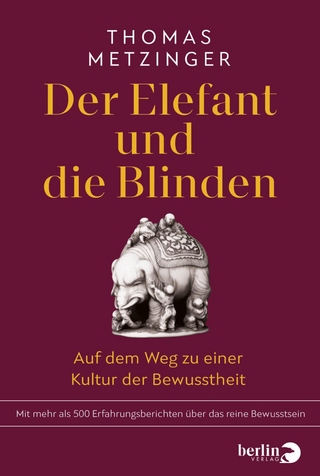The World We Live In
Springer International Publishing (Verlag)
978-3-319-42853-6 (ISBN)
This book contains twelve engaging philosophical lectures given by Alexandru Dragomir, most of them given during Romania's Communist regime. The lectures deal with a diverse range of topics, such as the function of the question, self-deception, banalities with a metaphysical dimension, and how the world we live in has been shaped by the intellect. Among the thinkers discussed in these lectures are Anaxagoras, Socrates, Plato, Aristotle, Descartes, and Nietzsche.
Alexandru Dragomir was a Romanian philosopher born in 1916. After studying law and philosophy at the University of Bucharest (1933-1939), he left Romania to study for a doctorate in philosophy in Freiburg, Germany, under Martin Heidegger. He stayed in Freiburg for two years (1941-1943), but before defending his dissertation he was called back to Romania for military service and sent to the front. After 1948, historical circumstances forced him to become a clandestine philosopher: he was known only within a very limited circle. He died in 2002 without ever publishing anything. It was only after his death that Dragomir's notebooks came to light. His work has been published posthumously in five volumes by Humanitas, Bucharest; the present volume is the first to appear in English translation. In 2009, the Alexandru Dragomir Institute for Philosophy was founded in Bucharest as an independent research institute under the auspices of the Romanian Society for Phenomenology.
Alexandru Dragomir was born in 1916 in Romania. After studying law and philosophy at the University of Bucharest (1933-1939), he left Romania to study for a doctorate in philosophy in Freiburg, Germany, under Martin Heidegger. He stayed in Freiburg for two years (1941-1943), but before defending his dissertation he was called back to Romania for military service and sent to the front. After 1948, historical circumstances forced him to become a clandestine philosopher: he was known only within a very limited circle, and even his friends did not know whether or not he was giving concrete expression to his philosophical preoccupations in a written work. He died in 2002 without ever publishing anything. It was only after his death that the "Dragomir notebooks" came to light, the record of an astounding exercise of solitary thinking. His work has been published posthumously in five volumes by Humanitas, Bucharest. Two of these volumes have been published in French translation by Jean Vrin, Paris: Banalités métaphysiques (2008) and Cahiers du temps (2010), the latter being the fruit of his lifelong research on the topic of time (a German edition of this work is forthcoming). The journal Studia Phaenomenologica has devoted a complete issue to Dragomir (IV, 3-4, 2004), including accounts of his personality and work (in French, German, and English). Gabriel Liiceanu is Emeritus Professor of Philosophy at the University of Bucharest. He is the author of many books on philosophy and phenomenology, of which several have been translated into different languages. He is the translator into Romanian (in collaboration) of Heidegger's Being and Time. Catalin Partenie is Associate Professor of Philosophy at the National School of Political Studies and Administration, Bucharest. He is the editor of Plato and Heidegger: Towards Dialogue (Northwestern University Press, 2005; in collaboration with Tom Rockmore), and Plato's Myths (Cambridge University Press, 2009). Andrei Plesu is the Rector of New Europe College, Bucharest, and Professor of Philosophy of Religion at the University of Bucharest. He has served as Minister of Culture and Minister of Foreign Affairs of Romania. His publications include Reflexion und Leidenschaft: Elemente einer Ethik des Intervals (Deuticke, 1992) and Eliten: Ost und West (de Gruyter, 2000).
Part 1.- 1. Question and answer.- 2. Means of self-deception.- 3. Utter metaphysical banalities.- 4. On the nation.- 5. What is happening to us?.- 6. Four short lectures.- Part 2.- 7. Socrates: philosophy confronts the city.- 8. Comments on the Philebus.- 9. The world we live in.
"Romania missed in Dragomir a valuable teacher, less gripping and hypnotic than Heidegger no doubt, but more congenial and digestible. The editors of this volume are to be congratulated for making amends." (Michael Inwood, Philosophical Quarterly, Vol. 67 (268), 2017)
| Erscheinungsdatum | 23.09.2016 |
|---|---|
| Reihe/Serie | Phaenomenologica |
| Übersetzer | James Christian Brown |
| Zusatzinfo | XIII, 167 p. 2 illus. |
| Verlagsort | Cham |
| Sprache | englisch |
| Maße | 155 x 235 mm |
| Themenwelt | Geisteswissenschaften ► Philosophie ► Geschichte der Philosophie |
| Geisteswissenschaften ► Philosophie ► Philosophie Altertum / Antike | |
| Geisteswissenschaften ► Philosophie ► Philosophie der Neuzeit | |
| Schlagworte | Anaxagoras, intellect • Applied phenomenological thinking • Aristotle, science, intellect, main types of quest • Aristotle, science, intellect, main types of question • Classical Philosophy • Descartes, reason, science, doubt, world, method • Dialogue, knowledge, when dialogue is impossible, • Freedom, the divine, metaphysics • History of Philosophy • Metaphysics, spatial and temporal metaphysical ban • Metaphysics, spatial and temporal metaphysical banalities • Metaphysics, spatial and temporal metaphysical banalities • Phenomenology • Plato, the Philebus, ontology, dialectic • Religion and Philosophy • Socrates, refutation, method, confrontation with A • Socrates, refutation, method, confrontation with Athens • Time, existence, self-deception |
| ISBN-10 | 3-319-42853-5 / 3319428535 |
| ISBN-13 | 978-3-319-42853-6 / 9783319428536 |
| Zustand | Neuware |
| Haben Sie eine Frage zum Produkt? |
aus dem Bereich




